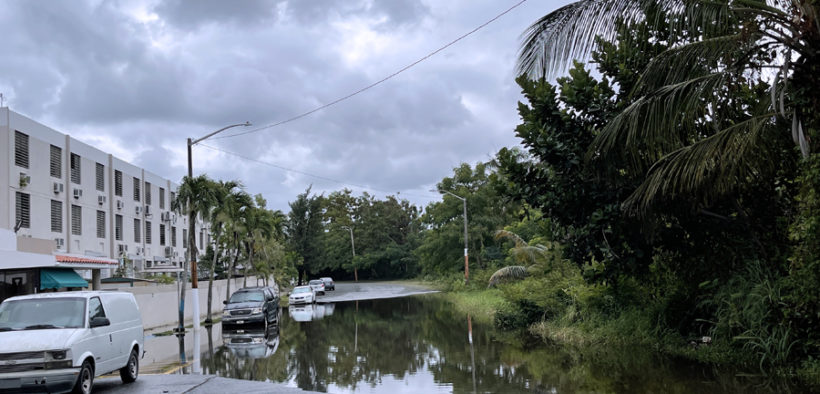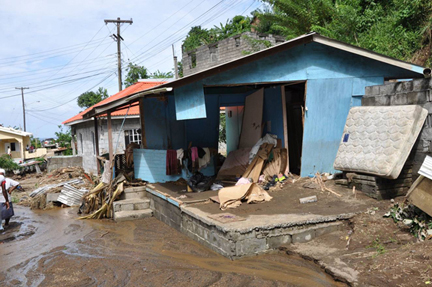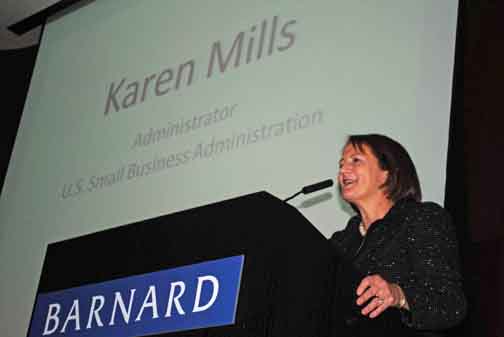Op-Ed: What are floods telling us?

Flooding is a recurring subject in our daily conversations as it is the most damaging of nature’s forces, The recent rains and in particular the sudden floods force us as a country to pay attention to the trending threats of climate change.
As an oceanographer, I have a responsibility to raise the flag on the effect of sea-level rise on the future of human settlements and daily life.
Many people confuse sea level rise with other phenomena such as: storms, high tides, and coastal erosion. Although they are separate phenomena, the rise in sea level exacerbates and aggravates those other flood factors. As sea level continues to rise and becomes the new base level, those other flood phenomena will reach farther inland.
Even as we continue to move toward renewable energy and try to reduce greenhouse gas emissions, sea levels will continue to rise and will do so faster and faster. The carbon dioxide we have emitted over the past two centuries has stored excess heat in the oceans which are two degrees Fahrenheit warmer than 200 years ago.
This century we are on track to double that. Warmer oceans cause the ice sheets in Antarctica and Greenland to melt faster, causing a global rise in sea level to heights never seen before in human civilization.
What does this mean for us? Sea level rise is a problem more terrestrial than maritime. Have we not all seen a significant increase in flooding and erosion on our coasts? If the sea level increases five feet, the effect on the sea itself will be moderate.
However, it will have a profound impact on coastal communities around the world. When the sea rises over 10 feet in the next century, about 30 countries will disappear underwater.
The problem of climate change is three separate problems: sustainability, resilience, and adaptation. To reduce global warming, total emissions of CO2 and other greenhouse gases must be decreased as soon as possible. The challenge of producing energy without increasing the planet’s temperature is an example of sustainability.
As the world is getting hotter, the patterns of climate are changing. We see more wildfires, more intense hurricanes, more torrential rains, and more severe droughts. We must design to be more resilient and minimize the impact. However, making ourselves more resilient to present-day flood threats does not mean preparing us for future sea level rise.

That is why we have created the Caribbean Center for Rising Seas, a new program of the Puerto Rico Science, Technology and Research Trust. We will collaborate with the Rising Seas Institute and other international expert organizations such as the Global Resiliency Institute, to help Puerto Rico and the Caribbean adapt in the new era of increasing flood risk from storms, tides, and sea level rise.
Puerto Rico’s geography is an ideal “laboratory” for changing building codes, zoning, and infrastructure to prepare for future flooding. We are interested in working with architects, engineers, planners, economists, lawyers, bankers, and others who will be at the front lines of adaptation to sea level rise.
Professional knowledge and accepted practices of these specialties must be redefined. We need to understand sea level rise to amend key regulations including building codes, zoning regulations, and land classification.
Much of Puerto Rico has high elevation, extending hundreds and thousands of feet above sea level. Because of its topography, Puerto Rico has a good future. The rise in sea level can be slowed but is unstoppable. Adapting to future sea level requires planning for a future condition that we have never experienced before as a society. As an added benefit, adaptation will also improve resilience to flooding in the near term.
This is the legacy we must create for future generations. This issue must be addressed today, not the next time the rains and floods remind us of it. Rising sea level presents us with a problem and an opportunity.







